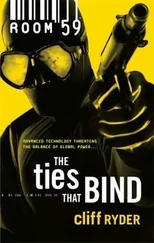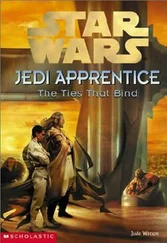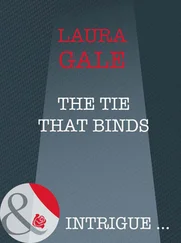I walked over to the doorway and stood with my back to her. “I didn’t intend for this—”
“Sandy,” she said. “Look at me.”
I turned to face her. She was still seated on the couch with the shoe box of Lyman’s money beside her. Her dress was low on one shoulder.
“You didn’t mean any harm,” she said.
“Maybe not,” I said. “But I’d better go.”
“Yes, but only if you promise you’ll come back. We’ve been more than friends for a long time; I couldn’t stand it if that ended too.”
“I’ll stop by tomorrow. Or the next day.”
“Don’t make it too long,” she said.
Then I left and went outside and damned myself for a fool, while the stars winked overhead like so many clowns’ eyes. What in Christ’s name did I think I was doing? Sure she was good-looking. Of course she was a fine woman, a person you just naturally felt good being near and wanted to help if you could. But what help was any of what I’d been doing on the couch? That was a lot of help, wasn’t it? She was thirty-one years older than I was, after all, and more to the point, she might have been closer to me than just a good neighbor woman down the road if in 1922 my dad had been able to persuade her to give up her iron sense of duty. Sometimes, hell, it seems to me that I’ll always have more of balls than I ever will of brains. Sometimes I’m flat a goddamn fool.
Anyway, after that night I didn’t go back the next day, or the next. It was almost two weeks before I returned to see Edith, and then when I entered that postcard living room again I made a point of sitting on a straight chair. I stayed away from the couch. Edith, though, was no different than she had been before. She was still pleasant, a little vacant maybe, like she was still caught inside that fog dream of hers, but pleasant nonetheless, as if nothing new had happened between us. So it was comfortable with her again, and I went on stopping by the house in the evening to see her, to visit and pass the time between old friends. I did that at least once a week as the winter turned spring and the pattern returned.
THEN TOWARD the end of July — this would still be 1961—she called me one evening early. “Good, you’re home,” she said.
“I just came in.”
“I have a surprise for you. Will you come for supper?”
So I cleaned up, combed my hair and shaved, and drove down to the Goodnough place. And there, parked in front of the house at the picket gate, was a new green Pontiac with out-of-state plates, and inside the house, sitting with his elbows on the kitchen table and that foolish lap-dog’s grin on his face, was Lyman Goodnough.
“Well,” I said. “I’ll be go to hell.”
He stood up to shake my hand. “Long time no see.”
He sat down again and grinned some more, as if he expected me to make some appropriate formal remarks upon his safe return to the house. Edith stood beside him with a hand on his shoulder. She was beaming; her face shone like a fresh pink poppy. I admit they made a picture, the two of them smiling at me from across the kitchen table, but I wasn’t up to it. I wasn’t so forgiving as Edith was.
In the almost twenty years that he had been gone, renting rooms in this country’s cities and sending penny postcards home to prove he had, Lyman had gone bald, turned shiny as glass on top; he was still tall and spare as a rail, only now instead of wearing farm-boy overalls and sand-caked shoes he was draped fancy in a new houndstooth suit that was too hot and too heavy for July; on his feet he sported black-and-white wing tips that any Las Vegas gambler or East Colfax pimp in Denver would have thought twice about wearing in public. He was a sight.
Edith herself was dressed as for a party. She had gotten out a silky summer dress that must have been fashionable in the 1920s and had combed her hair back from her face in a way I’d never seen before. It was obvious that she was pink with pleasure at having him home. During dinner, I remember, there didn’t seem to be enough that she could do for him; she kept popping up and down like a girl who was having a boyfriend over for dinner and family approval. She was positively solicitous and festive at the same time, worrying cheerfully whether Lyman had enough roast beef and sweet potatoes to eat and concerning herself happily as to the hotness of his coffee. Meanwhile, Lyman masticated and talked with his mouth full; he sat there picking his teeth like a landlord and regaled us with news of his wide travels. Los Angeles, California, was bigger than we could believe. Mobile, Alabama, on the other hand, wasn’t so big, but it was hot. Over dessert, he allowed that we could keep New York City. He’d had all he wanted of New York City, New York.
That’s the way dinner went that evening: Lyman gave us travelogue while Edith fed us roast beef and cherry pie. Afterwards, after we had finished eating and Lyman had talked himself full circle home again, Edith put on an apron and began to sing to herself over the dishes in the sink. Then her brother coaxed me outside to get the benefit of his Pontiac. It stood purple-green under the yard light, one of those long heavy boats they made in the early sixties, with chrome. He opened the driver’s door. “Try her out,” he said.
“I don’t think so,” I said.
“Just sit in her then.”
“No thanks.”
“Well, she drives like a wet dream. Already put eleven thousand miles on her.”
“Sure,” I said. “All right. But what in goddamn hell took you so long? It’s been almost twenty years. Didn’t you know she was waiting all this time?”
“Who?”
“Edith. For christsake. Your sister.”
“Oh. Well,” he said. He shut the car door. “There is a lot of cities, Sandy. You just don’t have a idea till you start looking.”
“And you had to see every damn one of them, is that it?”
“No, sir,” he said. “Nope, I skipped a few. I found out they was much alike.”
So that was Lyman Goodnough. What in hell were you going to do with him? Well, of course Edith knew very well what to do with him. She took him in and fed him supper — because after all, despite everything, despite almost two decades of waiting, he was home again now like only she knew he would be. And she was glad that he was.
Outside under the yard light Lyman stood in front of his car flicking dead grasshoppers and dead millers off the chrome of the grill. “You suppose she has some more cherry pie?” he said. “That’s one thing I missed.”
“Don’t tell me,” I said. “Tell her.”
NOW I DON’T pretend to think that a mere stretch of six years is anywhere near enough time. But I suppose if that’s all you’re given and no more, then six years will have to do. In the end that’s what Edith Goodnough had: she had six years of what you may call fun. Or good times. Or better, just the day-in, day-out mean rich goodness of being alive, when at night you lie down in the warm dark pleased with your corner of the world, and then you wake the next morning still pleased with it, and you know that, too, while you lie there for a time listening in peace to the mourning doves calling from the elm trees and telephone lines, until finally the thought of black coffee moves you up out of bed and down the stairs to the kitchen stove, so that once again you can begin it all afresh, with pleasure, with eagerness even. Because yes, Edith had that for a while. During that period it was written all over her face. Her brown eyes shone and snapped for six years.
Of course you might always wish that it had been longer, or that it had come earlier, when she was still young, when she still might have borne children, when my dad was still alive, but wishing for such things is a waste of time; it doesn’t make them happen. My dad taught me that, told me as much that day in 1943 when he knocked sense or at least fear into Old Man Goodnough and then afterwards talked to me while I drank beer for the first time and got drunk. So I try to remember it, and even today, knowing what I do about the end, I still take satisfaction in remembering that though Edith was sixty-four when her brother finally returned in his wool suit and Pontiac, and despite the fact that Lyman himself was sixty-two, still, together, almost as if they were honeymooners, they had those six good years from 1961 until 1967 before things suddenly went bad again. It doesn’t change those years to know that after 1967 things turned so much worse finally that something desperate had to be done to end them. Regardless, they were still good years, good times. I believe that.
Читать дальше












